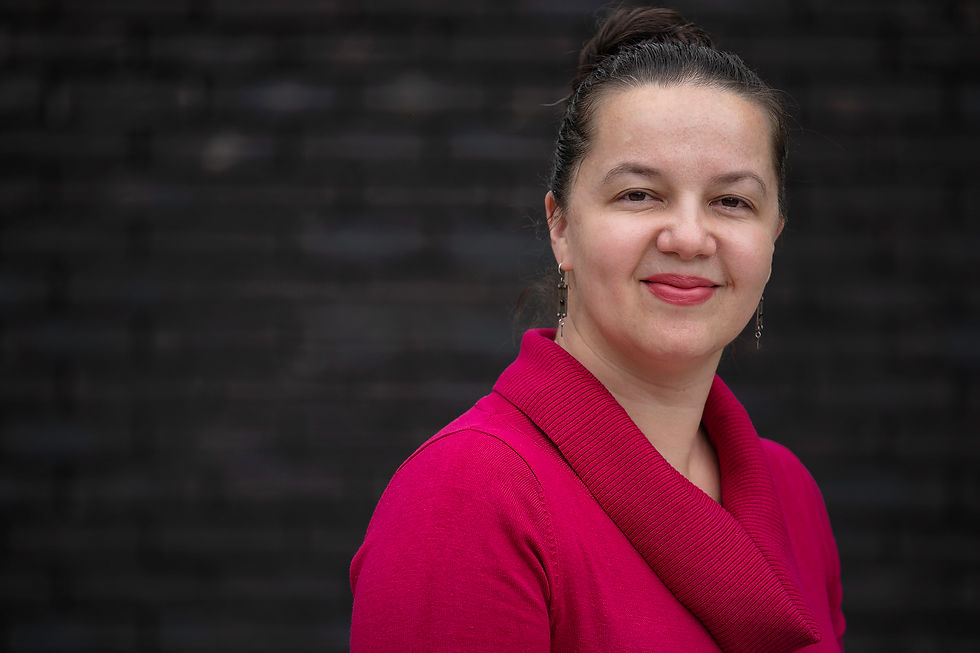The Role of the Teacher is to Nurture Confidence
- Zlata Simović

- Nov 29, 2023
- 3 min read

In this article, our wonderful English Language teacher Zlata Simović discusses the significance of instilling confidence in the upcoming generations, giving us insight into her personal teaching methods along the way.
The role of a teacher in today's modern world is complex and comprehensive. A teacher is much more than a mere lecturer or a person who is there to answer questions and provide prepared answers. Such a learning process could easily be handled by a robot. Above all, a teacher needs to be a trusted individual; someone whom students unconditionally trust and someone who, through their effort and work, sets an example of good behavior for the students. There is a saying, "children see, children do." Therefore, a teacher is a person with an impeccable reputation who is always dedicated to their students and sets an example of how to live life.
Bloom is a unique school in which teachers play the role of leaders, and in which each student has an appropriate individual approach that fully aligns with their affinities. All of this creates a significant precondition for building children's self-confidence.
According to the authors of the book 'Better to Be Wind Than Leaf,' there are two different types of self-confidence: internal and external. Internal self-confidence (also known as self-esteem) relates to the feeling and belief that we are okay, that we are valuable just by existing. High self-esteem is recognized by self-satisfaction and a calm attitude towards oneself. Such a person loves themselves, knows themselves well, has clear life goals, and is optimistic. External self-confidence pertains to our abilities, what we excel at and are skilled in, what we can achieve. Both components of confidence are important.
Self-esteem and self-confidence significantly impact a child's academic success. Children who believe in themselves and their abilities achieve better grades at school than those who often think they cannot do anything well. Good academic success further boosts a child's self-esteem and self-confidence. Low self-esteem and self-confidence also negatively affect creativity. A creative child is curious and willing to try new and unfamiliar things. A child with low self-confidence is afraid of such things and lacks the courage to venture into something new.
One of the most significant roles of a teacher is to provide continuous support to students, to constantly encourage them on their road to success. My years of experience have shown me that some students often know the answer to a posed question but, due to low self-confidence (or shyness or lack of motivation), they are not ready to provide the correct answer.
As for teaching English, I consistently adhere to a method called desuggestopedia (a method of teaching a foreign language in which students learn quickly by being made to feel relaxed, interested and positive), which involves the teacher addressing students in a quiet, pleasant voice and always offering positive comments on their learning. According to this method, not only should the teacher avoid raising their voice but they also need to refrain from correcting the student if they make a mistake when answering a question. The teacher should choose appropriate ways to help the student arrive at the correct answer without hurting their feelings. For me, this is one of the most important aspects of teaching because children always identify with what they are told. If we constantly tell children they are lazy and will not achieve any results, we cannot expect success. However, if we continuously encourage and support them, and lead by example in how they should work, then success is bound to follow.
Finally, bearing in mind that childhood is not the shortest age in our life but rather the longest, because it stays with us until our death, the role of any teacher is to encourage the development of positive feelings in children, starting from the earliest age and until the end of their schooling. Only in this way will we succeed in creating honest, hard working people who will be both responsible and thoughtful enough to take care of other people's feelings and who will become citizens of the world, which is the ultimate goal of the Montessori method.








Comments